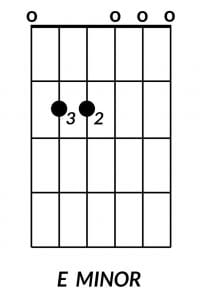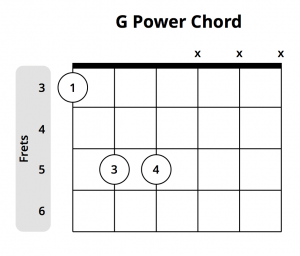1. What has been your most difficult mentoring challenge so far? Why?
The most difficult challenge so far has been technical issues, especially in terms of audio. In my first learning meeting with my mentor, the audio was not working almost whatsoever, and to be able to hear my mentor we had to be on a separate phone call from the video, which made the audio and visual become disjointed. Then, in my most recent meeting, the audio worked except for the fact that I could not hear my mentor’s guitar at all, which made it really difficult to learn the material effectively because I was only relying on visuals, which is not great for learning music. We are working on finding a solution to these issues, but as of now, these issues have hindered me more than they would with other skills because it is an instrument and they have been my main challenge so far.
2. What is working well? Why?
Something that has been working well during this project has been my learning speed. I seem to be picking up the material quite quickly and easily, and I have somewhat of a natural ability when it comes to forming chords. Because I am a fast learner, I have been able to learn lots of new material each meeting and progress at a steady pace, rather than only one new skill each meeting. Another positive aspect of this project is that I have been very motivated to try new pieces and chords on my own. I have really been enjoying learning guitar, and I often look up songs I like and see if they have chords I already know, and I see if I can play them. Having this motivation to do some self-directed exploration has been very good for me, and I hope it continues.
3. What could be working better? How can you make sure this happens?
Something that could be working better is a steadier practice routine instead of the patchy schedule I currently maintain. This way, I would ensure that my finger strength does not decrease and that I remember and can still play everything that I have learned. It would also help me improve faster and more steadily. However, this involves making playing and practicing every day into a habit so that it is a natural impulse. To do this, I plan to set a time and minimum length of practice each day so that I know exactly when and how long I’m supposed to practice and I have less leeway to put it off until later. Hopefully, this will develop into a habit over time and I won’t need to remind myself or put as much conscious effort into remembering anymore.
Progress Report
The skills I have learned so far: (skills marked with “new” are the ones I learned in my most recent meeting)
- Parts of a guitar
- Headstock
- Tuning pegs
- Nut
- Frets/fretboard
- Neck
- Soundhole
- Pick guard
- Bridge
- How the notes of the strings change based on which fret you push on them in
- How to tune a guitar
- Chromatic exercise
- Builds up finger strength
- Familiarizes you with the fretboard
- Practicing alternate picking (faster and leads to strumming patterns)
- Minor pentatonic scale
- Chords
- A major
- C major
- D major
- D minor (new)
- E major
- E minor (new)
- G major
- G power chord (new)
- This shape can be moved around the fretboard to make different power chords
- New chords are shown below:



- How to play the first part of Nothing Ever Changes – Acoustic by Nico Collins including chords and strumming pattern (new)
- How to play Water Fountain by Alec Benjamin including chords and strumming pattern (new)
Below I’ve included some sound recordings of myself playing the songs I’ve learned. Please be aware of the fact that they’re not perfect so there are some weird little errors here and there but I’m still learning and I hope you enjoy them!
Water Fountain by Alec Benjamin:
Click here for the original on Spotify and mine is below (instrumental guitar).
My version uses the chords C major, A minor, G major and D major, throughout the whole song with E Minor instead of G at one point. I also have a capo on the first fret.
Nothing Ever Changes – Acoustic by Nico Collins:
Click here for the original on Spotify and mine are below (I have included two because in the second one I changed the strumming pattern slightly to sound more like the original. Let me know which pattern you like better in the comments! Also, the beginning of both may sound a bit funky XD)
The chords in this song are A minor, D minor, E major, and A minor again throughout the whole song, but the strumming pattern changes over the verse, bridge and chorus.